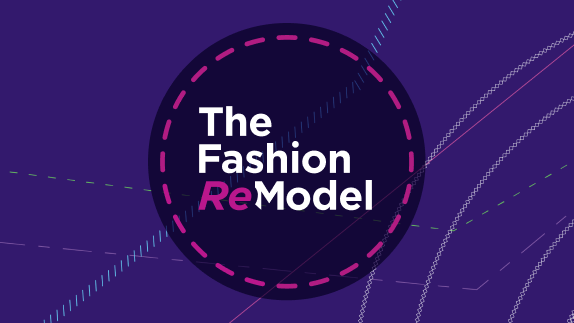23, November, 2021
Circular business models, in sectors such as rental and resale, have the potential to claim 23% of the global fashion market by 2030 and grasp a USD 700 billion opportunity, new research from the Ellen MacArthur Foundation has found.
In its latest report, Circular Business Models: Redefining growth for a thriving fashion industry, the Foundation has shown how circular business models offer significant potential for greater revenue, while cutting the volume of new clothing and accessories produced.
Four examples of circular business models – rental, resale, repairrepairOperation by which a faulty or broken product or component is returned back to a usable state to fulfil its intended use., and remaking – represent a USD 73 billion market. These models are expected to continue growing as customers become increasingly motivated by affordability, convenience, and environmental awareness.
The Foundation warned however, that currently, these models do not always lead to environmental benefits, particularly, if they are seen purely as ‘add-ons’ to a traditional wasteful model as opposed to central to all business activities. For example, incentivising product take-back for resale, remaking or recycling by offering vouchers for new products may fuel more production. Rental models that offer clothes not designed to withstand many wears and cleaning cycles increase the chances of that model being economically and environmentally unviable. Ultimately, if not designed to be part of the system in which it sits, clothing will end up in landfill after very few uses.
To maximise the positive outcomes of circular business models and realise their full potential for better economic growth and environmental impacts the Foundation has recommended four key actions.
Rethink performance indicators, customer incentives, and customer experiences: Shifting to a business model based on increasing the use of products, rather than producing and selling more products, requires the business to rethink how it measures success, and to encourage its customers to opt for its circular offering through carefully designed incentives and enhanced customer experiences.
Design products that can be used more and for longer: To maximise the economic and environmental potential of circular business models, products need to be designed and made to be physically durable, emotionally durable, and able to be remade and recycled at the end of their use.
Co-create supply networks able to circulate products locally as well as globally: To successfully keep products in circulation, fashion supply chains, currently designed for a predictable one-way flow of products, need to be transformed into supply networks capable of circulating products locally and globally, through collaboration and the use of digital technologies.
Scale a wider range of circular business models: Scaling a variety of circular business models that generate revenue without producing new products can increase the overall economic and environmental opportunity long term.
Marilyn Martinez, fashion initiative project manager at the Ellen MacArthur Foundation, said: “Not only do circular business models have massive potential to become mainstream, they provide new and better growth for the fashion industry. Clothing production doubled between 2000 and 2015, while the time we use clothes fell by more than a third. Circular business models can help turn this around and create a thriving industry that takes a lead on tackling global challenges such as climate change and biodiversity loss.”
For more information or to request an interview, please contact Gabriella Hewitt gabriella.hewitt@emf.org
Notes to Editor
About the Ellen MacArthur Foundation
The Ellen MacArthur Foundation is an international charity that develops and promotes the circular economycircular economyA systems solution framework that tackles global challenges like climate change, biodiversity loss, waste, and pollution. It is based on three principles, driven by design: eliminate waste and pollution, circulate products and materials (at their highest value), and regenerate nature. in order to tackle some of the biggest challenges of our time, such as climate change, biodiversity loss, waste, and pollution. We work with our network of private and public sector decision-makers, as well as academia, to build capacity, explore collaborative opportunities, and design and develop circular economy initiatives and solutions. Increasingly based on renewable energyrenewable energyEnergy derived from resources that are not depleted on timescales relevant to the economy, i.e. not geological timescales., a circular economy is driven by design to eliminate waste, circulate products and materials, and regenerate nature, to create resilience and prosperity for business, the environment, and society.
Further information: www.ellenmacarthurfoundation.org | @circulareconomy
About the Foundation's Fashion Initiative
The Fashion Initiative was launched by the Ellen MacArthur Foundation as ‘Make Fashion Circular’ at the Copenhagen Fashion Summit 2017, and brings together leaders from across the fashion industry to work with cities, philanthropists, NGOs, and innovators. Fashion companies that are in the Foundation's Network include: Strategic Partner - H&M Group, Partners - Inditex, Lacoste, Primark, PVH Corp., Ralph Lauren and Zalando, and members. The Foundation’s Fashion Initiative is leading international efforts to stop waste and pollution by creating a circular economy for the industry, where products are used more, are made to be made again and are made from safe, recycled or renewable inputs.
Further information: http://tiny.cc/makefashioncircular
Assets
All assets, including the report and guidelines can be found here.







